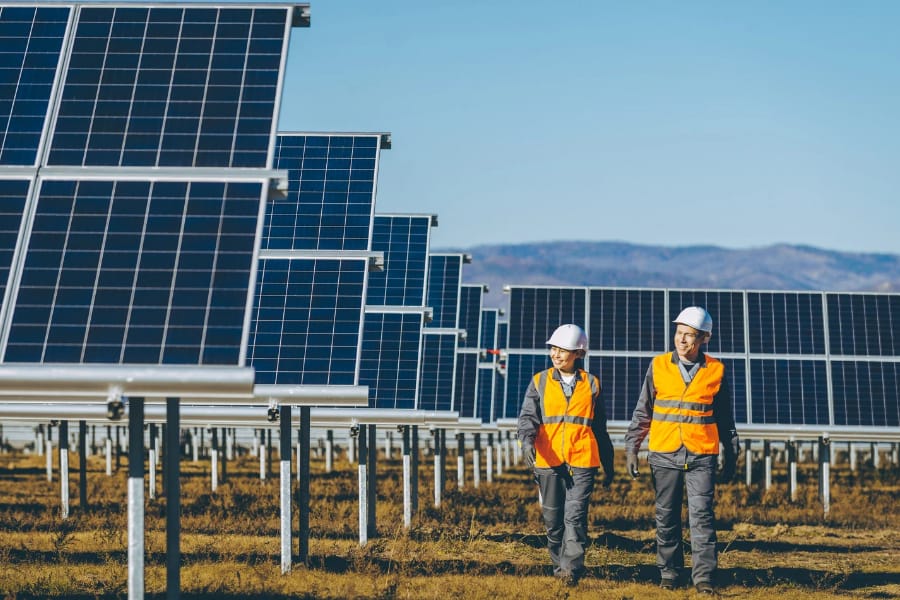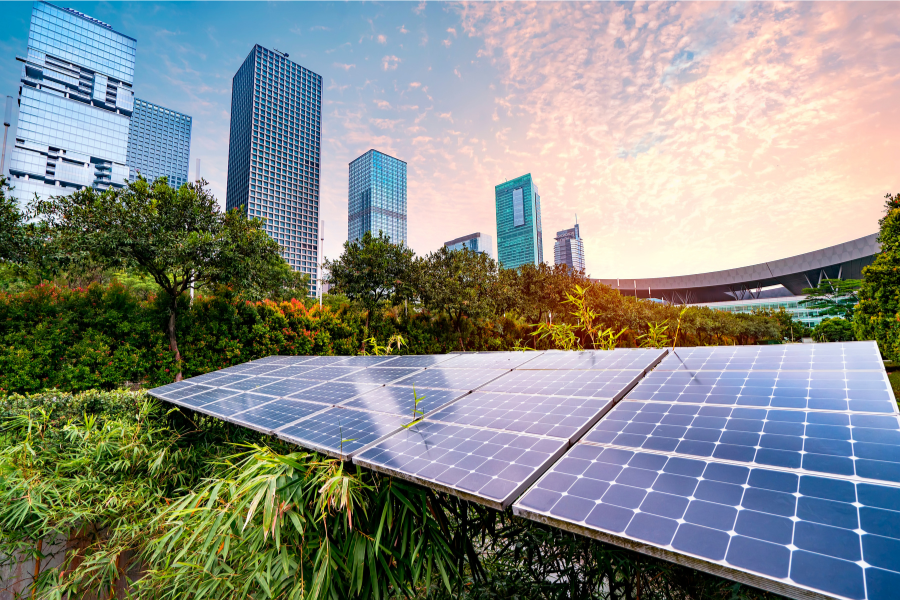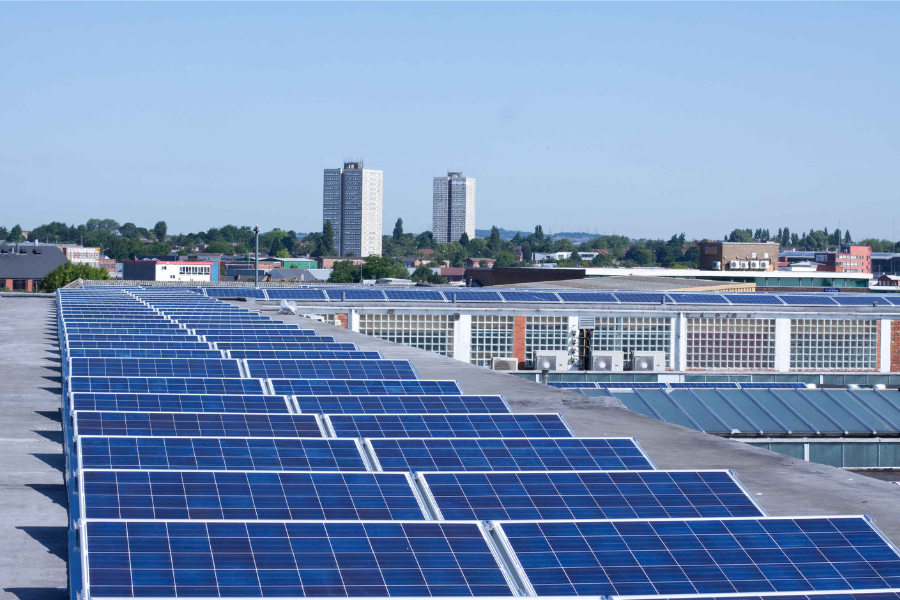Assessing Current Energy Consumption
Before deciding to go solar, it is imperative to understand your current energy consumption. This involves analysing your electricity bills to determine your average monthly and annual usage. Consider seasonal variations and identify patterns in your energy consumption. This information will help you size your solar system accurately to meet your energy needs.
Future Energy Requirements
Think about any future changes that might affect your energy needs. Are you planning to buy an electric vehicle, add more appliances, or expand your home? These changes could increase your energy consumption, and your solar system should be designed to accommodate potential future requirements.
Evaluating Solar Potential
Site Assessment
Conducting a site assessment is crucial to determine if your location is suitable for solar panels. This involves examining factors such as roof orientation, angle, and shading from nearby trees or buildings. A professional site assessment can provide a detailed analysis of your property’s solar potential.
Sunlight Exposure
The amount of sunlight your location receives directly impacts the efficiency of your solar panels. Areas with high solar irradiance will generate more energy. Use tools like solar maps or apps to estimate the sunlight exposure in your area, or consult with a solar expert for a precise evaluation.
Financial Considerations
Initial Investment and Payback Period
The cost of solar panels and installation can be substantial. It’s important to calculate the initial investment and compare it with the potential savings on your electricity bills. The payback period—the time it takes for your savings to equal the initial cost—varies based on factors like system size, local electricity rates, and available incentives.
Financing Options
Explore different financing options for your solar project. These can include cash purchases, solar loans, leases, and power purchase agreements (PPAs). Each option has its own set of advantages and implications for ownership, maintenance, and financial returns. Choose the one that aligns best with your financial situation and goals.

Incentives and Rebates
Federal Tax Credits
The federal government offers tax credits to reduce the cost of installing solar panels. These incentives can significantly lower the initial investment required for a solar system. Research the current federal tax credit rates and eligibility criteria to take full advantage of these benefits.
State and Local Incentives
In addition to federal incentives, many states and local governments offer rebates, tax credits, and other incentives for solar installations. These can vary widely by location. Check with local authorities or use online resources to find out what incentives are available in your area.
Types of Solar Systems
Grid-Tied Systems
Grid-tied solar systems are connected to the local utility grid. They allow you to draw power from the grid when your solar panels are not producing enough electricity and feed excess power back to the grid when production exceeds consumption. This type of system is popular for its simplicity and cost-effectiveness.
Off-Grid Systems
Off-grid systems are completely independent of the utility grid. They require batteries to store energy for use when the sun is not shining. These systems are ideal for remote locations where grid access is not available, but they can be more expensive and complex due to the need for energy storage.
Hybrid Systems
Hybrid solar systems combine the features of grid-tied and off-grid systems. They are connected to the grid but also include battery storage. This setup provides greater energy independence and resilience, allowing you to store excess energy and use it during grid outages or peak demand times.
Choosing the Right Solar Panels
Types of Solar Panels
There are different types of solar panels available, including monocrystalline, polycrystalline, and thin-film panels. Each type has its own advantages and disadvantages in terms of efficiency, cost, and appearance. Research the options and choose the one that best fits your needs and budget.
Efficiency and Warranty
Solar panel efficiency determines how much sunlight is converted into usable electricity. Higher efficiency panels produce more energy but may come at a higher cost. Additionally, consider the warranty offered by the manufacturer, as it provides an indication of the panel’s expected lifespan and reliability.
Installation and Maintenance
Finding a Reputable Installer
Choosing a reputable and experienced installer is crucial for the success of your solar project. Look for certified professionals with positive reviews and a proven track record. Obtain multiple quotes and compare them to ensure you are getting the best value for your investment.
Maintenance Requirements
Solar panels require minimal maintenance, but it’s important to keep them clean and inspect them periodically to ensure optimal performance. Discuss maintenance requirements with your installer and consider any additional costs for ongoing upkeep.
“The sun isn’t just out there for the plants—use clean, renewable solar power to light up your life”
Impact on Property Value
Increasing Home Value
Installing solar panels can increase your home’s value. Studies have shown that homes with solar energy systems sell faster and at higher prices than those without. Potential buyers are often attracted to the prospect of lower energy bills and a reduced carbon footprint.
Market Considerations
However, the impact on property value can vary based on your location and market conditions. In some areas, solar installations are more common and well-regarded, while in others, they may not significantly influence home prices. Research local real estate trends to understand the potential impact.
Environmental Benefits
Reducing Carbon Footprint
One of the primary motivations for going solar is to reduce your carbon footprint. Solar energy is a clean, renewable source that generates electricity without emitting greenhouse gases. By installing solar panels, you contribute to the fight against climate change and promote environmental sustainability.
Supporting Renewable Energy
Investing in solar power supports the broader transition to renewable energy. It reduces reliance on fossil fuels, decreases air pollution, and conserves natural resources. Your decision to go solar sets an example and encourages others in your community to consider sustainable energy options.
Long-Term Considerations
System Lifespan
Solar panels are designed to last for decades, typically with warranties ranging from 20 to 25 years. Consider the long-term benefits and potential cost savings over the system’s lifespan. While the initial investment may be significant, the long-term returns can be substantial.
Technological Advancements
The solar industry is continuously evolving, with advancements in technology improving efficiency and reducing costs. Stay informed about new developments and consider how future innovations might impact your decision. Upgrading or expanding your system in the future could provide additional benefits.



